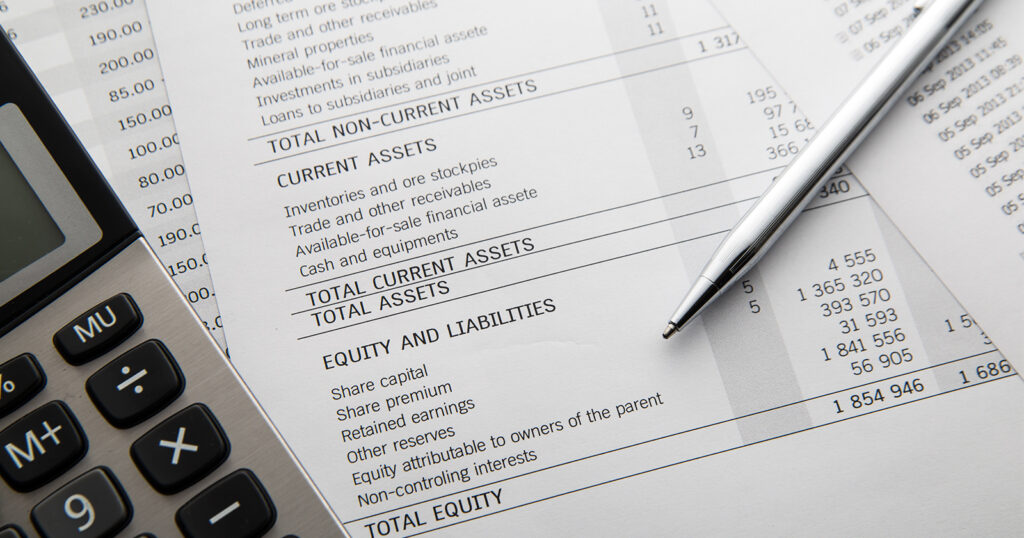Taking the initiative to learn accounting for small businesses can be such a positive skill. Perhaps you’ve just started a small business, and you need to be able to keep track of your finances.
Or maybe you’re thinking of starting a small business, and you want to get a head start on learning the accounting basics. Whatever your reason, learning accounting for small businesses is a great skill to have on your toolbelt.

Do Business Owners Need to Learn Accounting for Small Businesses?
As a business owner, you wear many hats. We get it! You are responsible for the day-to-day operations, managing employees, and ensuring that your customers are satisfied. With so many responsibilities, it’s easy to let accounting fall by the wayside or delegate it out.
Some small business owners hire an accountant or use a firm. Both are great options. However, learning accounting principles can help you run a small business more effectively.
You don’t need to do the day-to-day accounting but having an understanding of it means you will be better at wearing all those hats.
Learning accounting for small businesses will certainly help to make decisions about your business finances. Without this knowledge, you may make decisions that are not in the best interest of your company.
Read More:
Is Accounting Math Heavy? (Are Accountants Good at Math?)
You’d be surprised how many business owners don’t fully understand the numbers, the profit and loss, or the balance sheet. For example, you may choose to invest in a new piece of equipment without considering the long-term implications of this decision.
You should be fully aware of how much debt you have on the books, how much interest you will pay and what your depreciation expense will be. If you don’t know, then you should hire an accountant but still understand the terms and implications.
Learning accounting can also help you save money on taxes and avoid potential financial pitfalls. By understanding how taxes work, you can maximize your deductions and minimize your tax liability using things like planned asset purchasing and taking advantage of depreciation.
All these terms come into play when owning a small business. While sales need to be a priority, understanding the numbers should be before even starting a small business.
How to Learn Accounting for Small Business
If you’re starting a small business, you need to know the basics of accounting. Accounting is the process of recording, classifying, and summarizing financial transactions into financial statements like the balance sheet and income statement so stakeholders can make decisions.
You can learn accounting for small businesses online. Even one course on an intro to small business accounting will put you ahead of other entrepreneurs and small business owners.
Once you understand the basics of accounting, you can start keeping track of your company’s financial transactions. You’ll be able to ask insightful questions even if you have someone else preparing your books.
This will help you make better decisions about how to spend your money and grow your small business.
Learn Accounting for Small Business: The Essentials
While accounting for small businesses still covers the basic accounting concepts, it also needs to cover how to read and interpret financial statements at a basic level.
The first statement is the balance sheet. This statement shows a company’s assets, liabilities, and equity at a specific point in time. Assets are items that have value and can be used to generate income. Think about your cash, inventory and equipment.
Liabilities are obligations that must be paid in the future. This could be accounts payable or leases payable. Equity is the ownership interest that shareholders have in a company. Understanding how all of these work together is key to a successful business.
Then you are going to move on to the profit and loss statement. This statement shows how much revenue a business has generated and what expenses have been incurred.
Good small business owners keep an eye on their expenses and know what to expect. They actively manage their expenses to generate net income, the difference between income and expenses.
Is There a Course to Speed Up Learning?

A course can be useful to learn small business accounting faster. You don’t need to head to a community college or small business center since you can find all these resources online.
Most people learn best by doing things themselves, so a course will let you do that at your own pace.
Read More:
The Basic Accounting Equation – Simple but a Must Know
How Long Will it Take to Learn the Fundamentals?
In order to understand the fundamentals of small business accounting, it will take 3-6 months in your spare time. This will give you a strong foundation and enable you to improve your knowledge.
After this timeframe, you will be able to better understand the financial aspects of running a small business.
Learning Small Business Accounting: The Challenges
Small business accounting can be a challenge to learn, it takes time and persistence. Many small business owners are not familiar with accounting and its basic concepts.
This lack of knowledge can lead to financial problems and difficulty in making sound decisions about their business. Without understanding a profit and loss, or a balance sheet, a business owner doesn’t have their hands around their business.
Some of the challenges that people face learning small business accounting are as follows:
- Knowing where to start
- Understanding what you should learn
- Spending time on studying
- Committing and staying persistent.
The challenges to learning a two-part issue. The first two can be solved by taking a good course. The second two challenges are things you will have to figure out yourself. Make the time and learn every day if you want to grow your business.
Is All Small Business Accounting the Same?

Small business accounting is not all the same, but there are similarities. Learning accounting will help you run a business. Generally, small businesses have similar accounting needs. However, there are some key differences that you should be aware of.
Firstly, it is important to understand that not all small businesses are the same. Each business has its own unique needs and requirements. As such, it is important to tailor your accounting system to suit your specific business.
Accounting for an automotive shop won’t be the same as an inventory-heavy retail store. From a high level though, the accounting principles and fundamentals will be the same.
Secondly, while learning accounting will help you run a business, it is not essential. There are many successful small business owners who can’t prepare a set of financial statements and we’re not saying you should either.
We just know how helpful it can be if you can read, understand and interpret financial statements. However, if you want to give yourself the best chance of success in business, try to learn at least the basics of accounting.
Will Learning Accounting Help Run a Small Business?
There’s no doubt that learning accounting will help run a small business as you will be in a better position to make financial decisions. If the cost of goods sold is getting high year over year then you might realize to look into new suppliers to lower costs.
Another example is understanding how many fixed assets you can buy and how they will affect your taxable income.
While accounting tracks expenses and income, there is a lot more that you can do with the numbers once they are presented in financial statements. These can help you spot areas where a business may be overspending.
In addition, having a good understanding of accounting can help make better decisions about investments as you look at other companies balance sheets.
Of course, not every small business owner needs to be an expert in accounting. That is what you hire accounting firms and CPAs for. However, it helps to understand the basics as we previously mentioned.
For those who want to take their businesses to the next level, learning accounting can be a valuable tool that can help you manage your growth and finances.
Final Thoughts on Learning Small Business Accounting
Small business accounting is a great skill for small business owners and staff to learn. It can help them keep track of their finances, budget better, and make more informed decisions about their business.
Be a constant learner, take a course, read a book and gain more knowledge. It will help you for years to come!



